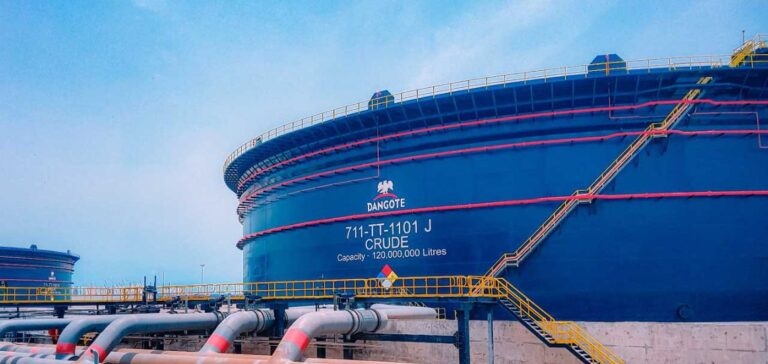Petrol prices in Nigeria have dropped to 860 naira (0.54 euros) per litre, a decrease driven by the growing competition between the new Dangote refinery and the Nigerian National Petroleum Corporation Limited (NNPC), the national oil entity. This price reduction follows several tariff adjustments made by Dangote, whose refinery is the largest on the African continent. The country, Africa’s largest oil producer, had previously imported the majority of its fuel needs. However, since September 2024, Dangote has started producing petrol locally.
The price reduction was accelerated in February 2025, when Dangote cut its deposit tariffs twice. The pump price, which had reached 1,030 naira per litre, thus decreased significantly. According to a statement from the group, the initiative aimed to provide relief to Nigerian consumers during the Ramadan period. In response to this competitive dynamic, NNPC also announced a reduction in its prices, aligning them with Dangote’s tariffs.
Impact of subsidies and market deregulation
Before Dangote’s entry into the market, Nigeria’s public refineries were largely inactive. NNPC attempted to restart a refinery in Port Harcourt in November 2024, but fuel imports remained essential. The removal of subsidies on petrol, decided by President Bola Ahmed Tinubu in May 2023, led to a sharp increase in pump prices. In October 2024, prices reached 1,030 naira in Lagos and 1,030 naira in Abuja, compared to around 195 naira previously. This price hike worsened the economic challenges for Nigerians, who faced inflation exceeding 30% in 2024.
Competition and pricing strategies
Ademola Adigun, CEO of AHA Strategies Ltd, commented on this trend, emphasising that Dangote’s price cuts were aimed at strengthening its dominant market position. He warned that this pricing strategy could prevent other distributors from competing effectively with Dangote. However, the group firmly denied any accusations of attempting to establish a monopoly. Ikemesit Effiong, an analyst at SBM Intelligence, suggested that the price reductions could also be linked to the stabilisation of the local currency and the drop in global crude oil prices. Clement Isong, president of the Major Energies Marketers Association of Nigeria (MEMAN), added that this market development reflected the deregulation of the sector, where competition now regulates prices.






















